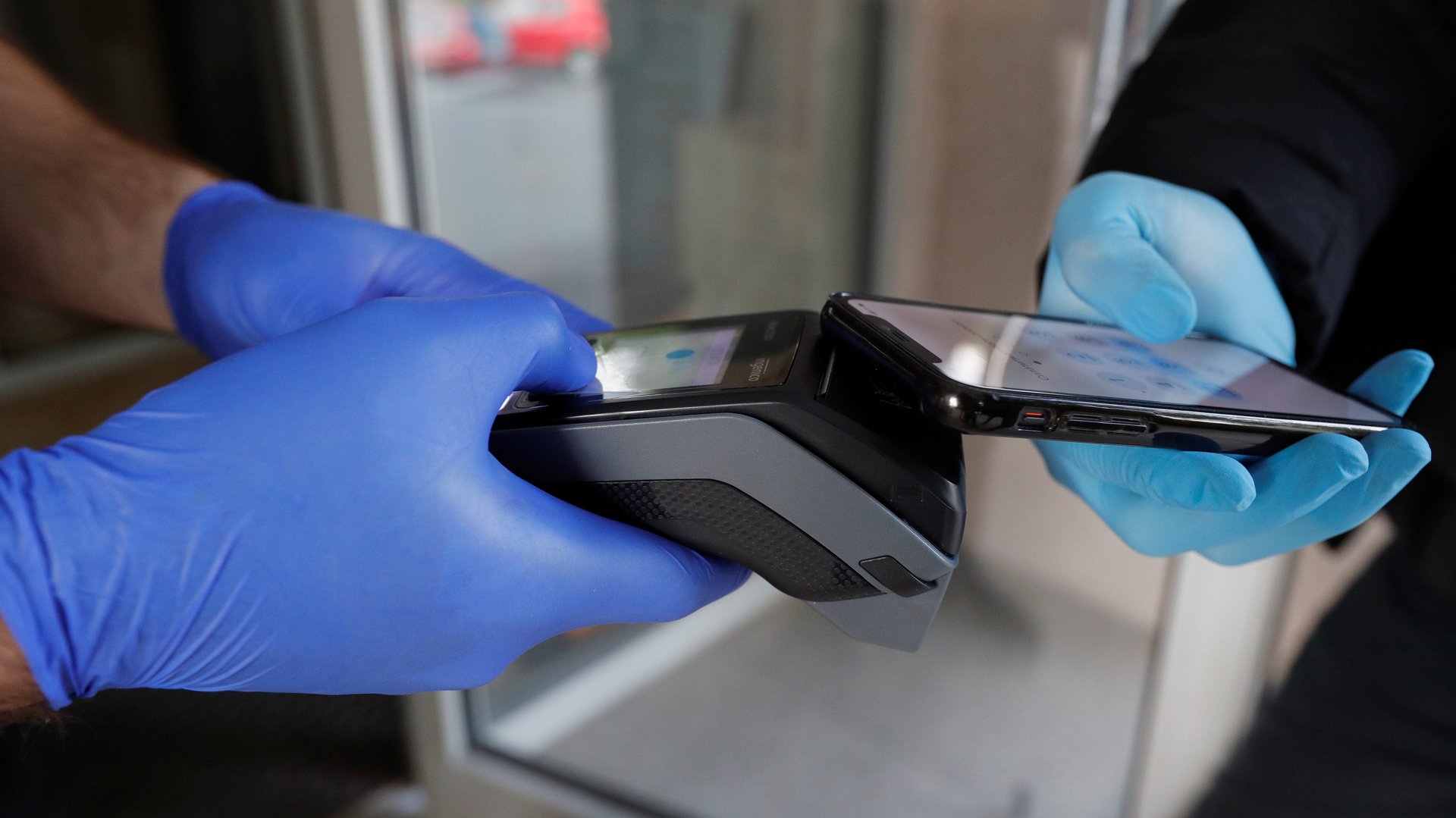Covid is accelerating the demise of cash, highlighting racial inequities in digital payments
The coronavirus pandemic has underscored society’s disparities in everything from health to employment and wealth. The crisis has also highlighted a lack of fairness in digital payments, which are quickly overtaking cash transactions. Central bank officials are looking at ways to make these transactions fairer and more inclusive.


The coronavirus pandemic has underscored society’s disparities in everything from health to employment and wealth. The crisis has also highlighted a lack of fairness in digital payments, which are quickly overtaking cash transactions. Central bank officials are looking at ways to make these transactions fairer and more inclusive.
Payment cards and digital wallets were catching on before the spread of Covid-19, but the shift has accelerated. Contactless cards and wallets got a marketing boost from the (overhyped) concern that cash could help spread the virus, and those worries prompted more stores to go cashless. Widespread lockdowns have given e-commerce a tailwind, another boon for digital transactions.
The downsides of a rapid shift to digital payments are well known—the elderly, poor, and people with handicaps can be especially unprepared. Black Americans are less likely to have bank accounts than other groups in the US, and the same is true for poor people in Europe, according to a report published today by the Bank for International Settlements. Small businesses tend to bear the highest costs for card payments, and BIS data show that cash transactions remain cheaper to process for merchants.
“There is still a long way to go in terms of increasing access, reducing costs, and making the system more efficient,” Hyun Song Shin, head of research at the BIS, said in a phone interview. “The cost of payments is still quite high considering the technology advances that we’ve made, and the cost is borne disproportionately by the unbanked or underbanked, and on small businesses.”
Recent government stimulus programs have shown just how clunky and inefficient payments are in some countries. The US issued paper stimulus checks and direct deposits to Americans, but some of that money got tangled up in a system of middlemen. The difficulties came at a time when some were counting on that money for essentials like buying food.
The BIS report adds to the discussion between the central banks about how to modernize the payments systems for the digital world. An earlier publication from the institution focused on financial stability: More than a dozen countries are either researching, piloting, or, like China, have ongoing work in place for central bank digital currencies. As physical cash becomes less prevalent, consumers are becoming more reliant on commercial intermediaries like banks and fintechs. In a financial panic, consumers may regret not having as much access to physical notes and coins.
Today’s BIS publication points out that a modernized payment system could also promote financial inclusion. Some, such as the elderly and other groups, rely on paper money for budgeting and may not be comfortable going online to handle their finances. The poor and minorities are much less likely to have bank accounts. Transferring and exchanging money from one currency to another tends to be more expensive for those who can least afford it. And while more people than ever have banking and transaction accounts, these services remain far from universal.
A central bank digital currency—a form of electronic cash issued directly from central banks to consumers—could, the thinking goes, reduce some costs and reach vulnerable parts of society. India’s unified payments interface (UPI) and its Aadhaar biometric identity systems have shown that a government utility for digital payments can quickly reach a large population. In the US, the Federal Reserve plans to overhaul its payment system to install FedNow, which would provide for real-time transactions between banks. Central banks can foster competition among commercial players while promoting interoperability between systems, the BIS wrote.
But promoting new forms of digital payments will have trade-offs. A central-bank digital currency could undermine the commercial banking system by facilitating bank runs. At the same time, the need for privacy and anonymity has to be balanced against worries of money laundering and illicit finance.
As cash becomes less popular, one way to protect disadvantaged groups is to protect existing system for physical money. In the UK, a country that’s going cashless faster than most, the government says it is committed to keeping the infrastructure for polymer notes and metal coins from collapsing. BIS research suggests that central bank digital currencies and a government utility for consumer transactions could also play a role. These efforts could make transactions cheaper, easier, and more accessible for everyone.